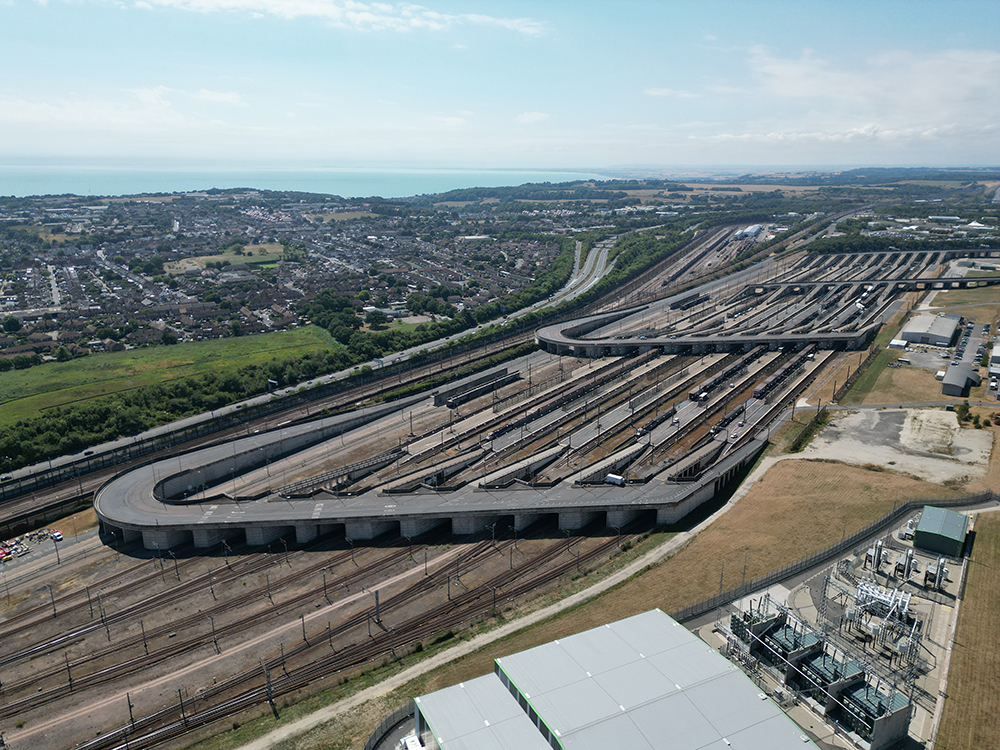
The plan aims to adapt the rail route from Folkestone to Wembley, via Ashford and Maidstone in Kent, to enable seamless transportation of goods from Europe to Great Britain.
Freight traffic through the Channel Tunnel has been hindered by the constraints of British loading gauges, preventing trains from progressing beyond the tunnel. The freight terminal at Barking in eastern London offered a partial solution, but fell short of meeting the industry's demand for an efficient freight link.
Network Rail's proposed upgrade seeks to address this issue and fulfill the rail industry's aspirations. The challenge arises as freight containers and wagons emerge from the Channel Tunnel, as the conventional rail lines in Kent lack the necessary clearance for European-sized loads. While the High Speed One rail link can accommodate such containers, it is limited by weight restrictions.
The Department for Transport (DfT) has been in discussions with Network Rail to make the rail option more feasible. The proposed plan involves adapting the Folkestone-Wembley line via Ashford and Maidstone in Kent, at the relatively low cost of £10 million.
If approved, the project will involve widening tunnels and lowering tracks to facilitate the seamless passage of intermodal freight containers. Trains arriving at Wembley could then continue on the West Coast Main Line, reaching distribution hubs in the Midlands, the North, and Scotland.
Getlink Group, the owner-operator of the Channel Tunnel, has long campaigned for the upgrade of rail lines through Kent as it knows improving existing ‘classic routes’ routes would facilitate a substantial increase in transported goods to the Wembley freight terminal.
Getlink said upgrading the railway through Kent would also reduce the need for trains to stop and unload goods in northern France before continuing to the UK, which would enhance efficiency and eliminate time-consuming processes.
Investing in rail infrastructure in Kent would benefit underutilised Channel Tunnel international rail depots, Gelink added, and aligns with the urgent need to address decarbonisation, driver shortages, congestion, and air quality concerns.
Stakeholders now eagerly await a decision on the new proposals in December, hoping for a breakthrough that could revolutionise freight transportation between Europe and Great Britain.